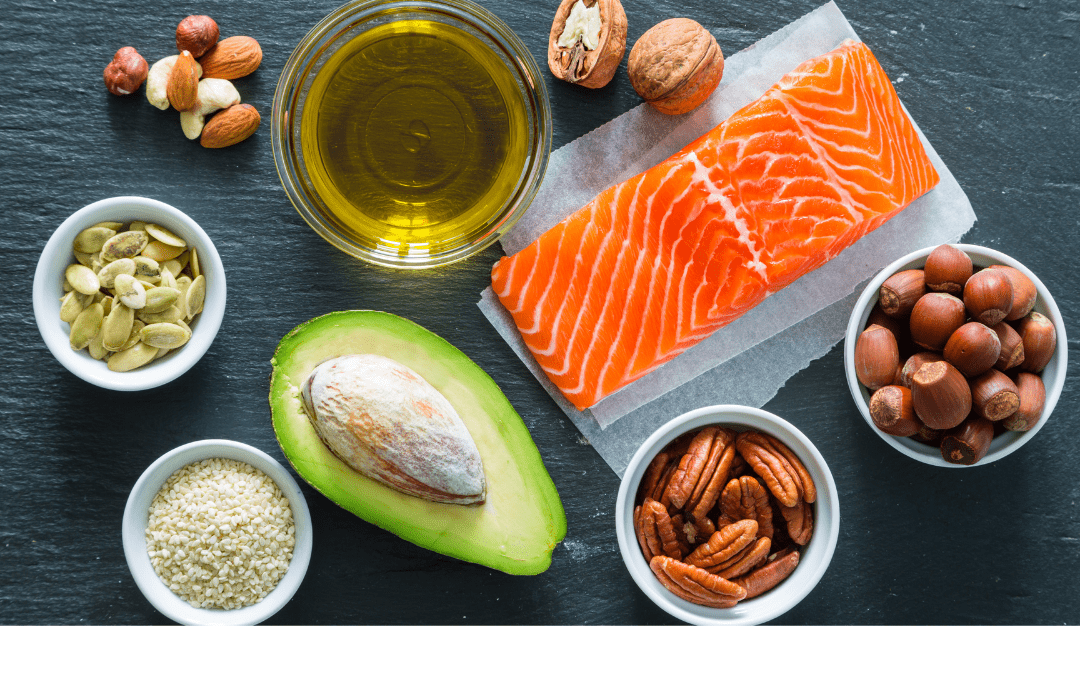We are used to thinking that food is just for energy. Our fuel source. Like gas for a car.
Protein for our muscles
Carbs for energy
Fat is something unwanted that may make our food taste better, but likes to deposit on our hips, bellies and thighs.
ALL fats provide energy. ALL fats are high in calories. 9kcal per gram. But not all fats are created equal. Some fats are better for you than others. Fats help the body absorb vitamin A, D & E, support cell growth, protect organs and keep the body warm. Dietary fat, sometimes referred to as fatty acids, can be found in foods derived from plants and animals.
Let’s start with the bad guys, the less healthy fats. They tend to be solid at room temperature. E.g., butter, margarine and animal fat
- Trans Fat. Danger. Evil. Don’t go there. They have no known health benefits. Trans fatty acids have been linked to increased inflammation in the body, can raise LDL levels (bad cholesterol) and suppress HDL levels (good cholesterol).
You can find these fats in foods that contain partially hydrogenated vegetable oils. Thankfully trans fats have been banned in many countries and have largely been removed from UK diet.
- Fried foods such as chips
- Biscuits, cakes, pastries
- Margarine
- Processed snack foods such as microwave popcorn
- Saturated Fat. The in between fat. Use sparingly.
These are found in meat with a high fat content and dairy products.
- High fat dairy foods – whole milk and whole milk dairy foods such as butter, hard cheese, cream, ice cream.
- Processed meats like ham
- Sausages
- Burgers
- Dark chicken meat and chicken skin
- Fatty cuts of lamb, beef or pork
- Tropical oils – coconut oil or palm oil
The good guys. Foods with good fats. Nuts, seeds and fish and can be liquid at room temperature.
- Monounsaturated Fat.
- Avocado
- Peanut butter and Almond butter
- Vegetable oils – olive oil
- Nuts – almonds, cashews, hazelnuts, peanuts
- Olives
- Polyunsaturated Fat. Essential fats as the body does not make them and has to get them from foods. They are needed for blood clotting, building of membranes, muscle movement and inflammation.
- Omega 3 fatty acids:
- Salmon
- Sardines
- Flaxseeds
- Walnuts
- Pine nuts
- Sesame seeds
- Sunflower seeds
- Sesame Oil
- Omega 6 fatty acids:
- Sunflower Oil
- Corn Oil
- Soybean
The main difference between the fats is the effect on your cholesterol levels. Think about the type of fat you are eating as well as the amount. Look after your heart. Try swapping saturated fats in your diet for unsaturated. This is one of the reasons the Mediterranean diet is associated with lower rates of cardiovascular disease.
Try the following:
- Have meat free days
- Eat more fruit , salad and vegetables
- Replace saturated fats with unsaturated fats


Recent Comments